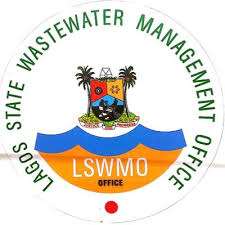Untangling the Challenges of Wastewater Management in Lagos, Nigeria
As one of the most populous cities in Africa, Lagos, Nigeria, faces a formidable challenge in managing its wastewater effectively. With a rapidly growing population and an overburdened infrastructure, the question of whether Lagos has a comprehensive sewage system has become a pressing concern.
Does Lagos have a Sewage System?
The short answer is, yes, Lagos does have a sewage system, but it is far from adequate to meet the city’s growing needs. The existing sewage network covers only a small portion of the city, leaving the majority of the population reliant on alternative methods of wastewater disposal, such as septic tanks and pit latrines.
How many Wastewater Treatment Plants are there in Nigeria?
According to the World Bank’s 2021 report titled “Towards Sustainable Wastewater Management in Nigeria”, it is estimated that Nigeria has only about 30 functional wastewater treatment plants, with the majority of them located in Lagos State. However, even these treatment facilities struggle to keep up with the sheer volume of wastewater generated, leading to significant environmental and public health concerns.
How much does a Wastewater Treatment Project Cost?
Developing a comprehensive wastewater treatment system for a city the size of Lagos is a colossal undertaking, both in terms of infrastructure and financial investment. Estimates suggest that the cost of a large-scale wastewater treatment project can range from tens to hundreds of millions of dollars, depending on the scope and complexity of the project. Wastewater management companies in partnership with property developers and business premises owners with occupants more than 50 persons can undertake budget-friendly biodigester systems in their individual projects.
The 7 Steps in Wastewater Treatment
Effective wastewater management typically involves a seven-step process:
1. Preliminary Treatment: Removal of large objects, grit, and other solid materials.
2. Primary Treatment: Sedimentation to remove suspended solids and organic matter.
3. Secondary Treatment: Biological processes to remove dissolved organic matter.
4. Tertiary Treatment: Advanced treatment to remove specific pollutants, such as nutrients.
5. Disinfection: Killing of pathogenic microorganisms.
6. Sludge Treatment: Handling and disposal of the byproducts of the treatment process.
7. Effluent Discharge: Safe release of the treated wastewater into the environment.
Waste Management Efforts in Lagos
The Lagos State Wastewater Management Office (LSWMO) is the the primary agency responsible for waste and wastewater management in the state. The mandate of the Office covers the implementation of policies, plans, programmes and projects on sewage and septage management in the State. The responsibility encompasses the management of the generation, collection, transportation, treatment and disposal of wastewater in order to ensure the discharge of a permissible and adequately treated effluent into the environment. However, the sheer scale of the challenge has overwhelmed this institution, leading to a persistent problem of illegal dumping and untreated wastewater discharge.
Addressing the Wastewater Crisis in Lagos
To effectively tackle the wastewater crisis in Lagos, a multi-pronged approach is required, including:
1. Expansion and modernization of the sewage network and treatment facilities.
2. Enforcement of environmental regulations and proper disposal practices.
3. Public education and awareness campaigns to promote responsible waste management.
4. Collaboration between government, private sector, and civil society organizations.
5. Sustainable financing mechanisms to support long-term infrastructure development.
The road ahead is undoubtedly challenging, but with a concerted effort and a commitment to environmental sustainability, Lagos can transform its wastewater management practices and pave the way for a healthier, more livable city.


